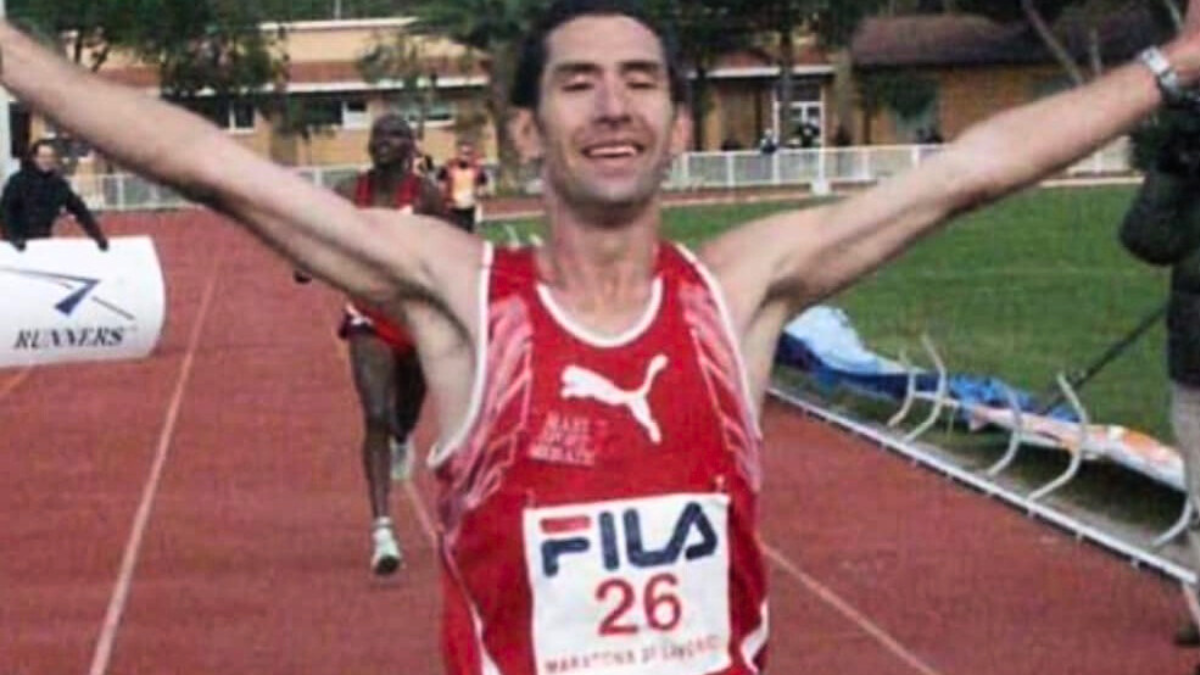Ramadan Mubarak, millions of people around the world will say to themselves in a few days. The holiest month of the year is approaching for Islamic believers – one dedicated to prayer, fasting and introspection – and the appointment has rarely been as anticipated as this year. And not just for strictly spiritual reasons. On the contrary. The widespread fear in Israel, the United States and in many Western chancelleries is that the month of the “reconnection” of the faithful with the Islamic tradition and its precepts, in the middle of this war in Gaza which, in five months, would have caused more than 30 thousand Palestinian casualties and caused a humanitarian catastrophe in the Gaza Strip, could give rise to a massive Arab uprising against the Jewish state, likely to cause further chaos and violence. It is for this reason that for weeks, and more explicitly in recent days, calls have been made to the warring parties to find an agreement likely to lead to a ceasefire, at least temporary, before the start of Ramadan. . But what exactly is this birthday, when exactly does it start and why is it so “dreaded” this year?
The meaning of Ramadan
“It was in the month of Ramadan that the Koran was sent down, a guide for men and proof of good guidance and distinction. Who among you is a witness? [l’inizio] fasting”, we read in verse 185 of the second sura of the holy book of Islam. According to tradition, one of the five pillars on which the architecture of the Muslim faith rests comes from here, from the memory of the revelation to the prophet Mohammed: fasting from dawn to dusk for one month per year, the ninth of the calendar. Not a deprivation as an end in itself, but a testimony of faith and a functional renunciation of reconnection, precisely, with faith and the God of Islam. Other prescriptions of the period also go in the same direction of reflection, self-control and concentration on the spiritual sphere of one's “ego” – such as abstaining from smoking or sexual relations, but also the study of the Koran, prayer and charity… These precepts that all adult believers are required to respect, with the exception of the elderly, the sick and pregnant or breastfeeding women. is that before dawn and after sunset those who observe Ramadan take two meals, called respectively suhur And iftar, while during the day it is not allowed to eat or drink. It is for this reason that in many Muslim-majority countries, working hours are reduced this month of the year and many restaurants are closed during the day.
When it starts and when it ends
Technically, Ramadan is the ninth month of the Islamic calendar. Calendar based on the cycles of the Moon, not the Sun, and whose months therefore last between 29 and 30 days. For this reason, a shift occurs every year compared to the Gregorian calendar, and Ramadan also gradually changes its period from year to year in relation to the seasons: it “moves back” each year by about 10 days. This year, Ramadan will begin on Monday March 11 or Tuesday March 12, depending on when the birth of the new moon is observed. According to Islamic tradition, in fact, we are certain of the beginning of a new month when the new moon is observed with certainty: the first segment of the moon must set after sunset. Technically, in 2024, the first moon of Ramadan should appear late in the afternoon of Sunday, March 10. But it's possible that this evening we still won't be able to observe it with the naked eye in much of the world, including the Middle East. It is more likely that witnesses called to verify the new moon, consulted in Saudi Arabia and other Islamic countries to be sure of the passage of the month, will see the first new segment on the evening of Monday, March 11. In this case, Ramadan would actually begin at dawn the next day, Tuesday March 12. A month later – in a lunar tone – the end of the period, marked by the celebrations ofEid al-Fitr (celebration of breaking the fast), preached between April 10 and 11.
Jerusalem and Al-Aqsa
If among the other pillars of the Islamic faith there is also the precept of making at least once in one's life a pilgrimage to Mecca, where the Prophet Muhammad began his preaching, there is also another city which has a special for Muslims: Jerusalem. . In fact, here is the Al-Aqsa Mosque, considered the third holiest site in Islam. With the first stones laid in the late 7th century under the Umayyad Caliphate, it is considered the oldest Islamic place of worship built by a Muslim ruler and is said to contain the oldest epigraphs with proclamations of belief in the Prophet. If during the sacred period of Ramadan the faithful gather everywhere in mosques to renew prayers, but also the social ties of communities which regain maximum importance, going on pilgrimage during this period to sacred places like Al-Aqsa gives according to tradition to those for whom it is a sort of “bonus”, explains one Open Mohammed Hashas, professor of Islamic thought at Luiss University in Rome. Which also recalls how the sacred character of Jerusalem for Islam was born on the basis of a founding tradition which interweaves it in a constructive way with the two other great monotheistic religions: that of the nocturnal journey that the Prophet of Mecca to Jerusalem (and back) to meet in heaven the other great prophets who preceded him, from Abraham to Moses to Jesus, with whom he discussed theological questions.
An Esplanade for two
In practice, however, Jerusalem has for centuries been synonymous with rivalry with other religions, and particularly in the last decades after the founding of the State of Israel and its annexation to it, especially if the we consider the parallel and distinct reference to the same sacred space. The famous golden-domed mosque of Al Aqsa stands on the same hill in Jerusalem where Jews believe their ancient sanctuary was built, destroyed in 586 BC by the Babylonians, rebuilt then destroyed a second and final time by the Romans in 70 A.D. For centuries, Jews around the world have prayed toward Jerusalem and the no longer existing Temple, and consider the Western Wall that stands opposite the hill to be the most spiritually charged to do so: in Hebrew simply Kotel Ha Ma'aravi, the Western Wall of what is believed to be the sacred area of the Sanctuary. It is precisely because of this extremely delicate physical and spiritual geography that the administration of the region is managed partly by Israel and partly by Islamic authorities. Management of the religious site is entrusted to the care of the Islamic Waqf association, which operates under Jordanian control, but Israel retains control of security, with the commitment to ensure access to the Temple Mount for Muslim faithful, subject to temporary restrictions for security reasons. the reasons. A commitment reiterated in recent hours by the office of Israeli Prime Minister Benjamin Netanyahu, who confirmed his intention not to apply particular restrictions for the start of this Ramadan, even if a “security assessment” will be carried out week by week at all times. up to date.
Between truce and escalation
For more than three months now – when the week-long truce window closed in late November – international negotiators have been trying to find common ground between Israel and Hamas. If until a few weeks ago the efforts were officially aimed at giving rise to a new truce – within the framework of which guarantee the release of Israeli hostages in the Gaza Strip in exchange for Palestinian prisoners in Israel, in addition to the entry of huge humanitarian aid into Gaza – now even the United States, the Jewish state's main ally, is explicitly calling for an “immediate ceasefire”. In short, this is not a temporary pause in fighting, but rather an end to hostilities, although this may be achieved in incremental stages. However, all diplomatic efforts made so far – with the mediation of Egypt and Qatar in particular – have failed, with Israel and Hamas sometimes taking responsibility. Over the past two weeks, the United States has attempted to breathe new life into the negotiations, with President Joe Biden even going so far as to “predict” a deal by Monday, March 5. A failed objective, apparently mainly due to Hamas's refusal to give Israel a clear list of hostages and the number of hostages who are still alive.
The Temptation of Sinwar
In reality, the impression is that even within the Islamist movement (as well as within the Israeli war cabinet), different lines are compared. This is also why the situation seems to constantly oscillate between truce and escalation. Second Haaretz, the latest temptation of Yahya Sinwar, the elusive Hamas leader in the Gaza Strip, would go in the latter direction: the Israeli defense establishment suspects that he has decided to blow up the negotiating table and concentrate on the “fire in the dust” effect with the start of Ramadan. The objective would be to achieve now what did not happen the day after October 7: an uprising against Israel by Palestinians in Jerusalem and the West Bank, mass demonstrations in Arab countries and “ideally” the end of military hesitations. , North. , including Hezbollah. Last week, the other Hamas leader, the one in exile in Qatar Ismail Haniyeh, seemed to give substance to this same line when, in a televised speech, he invited the Palestinians of Jerusalem and the West Bank to go en masse to Al Aqsa on the first day of Ramadan, and at the same time evoking the call to other actors of the “Axis of Resistance” (which links Hamas to Iran, Hezbollah and other allied regional militias) to renew their attacks on Israel. If this is truly Hamas' plan, there are very few days left to avoid the risk of another unpredictable explosion.


